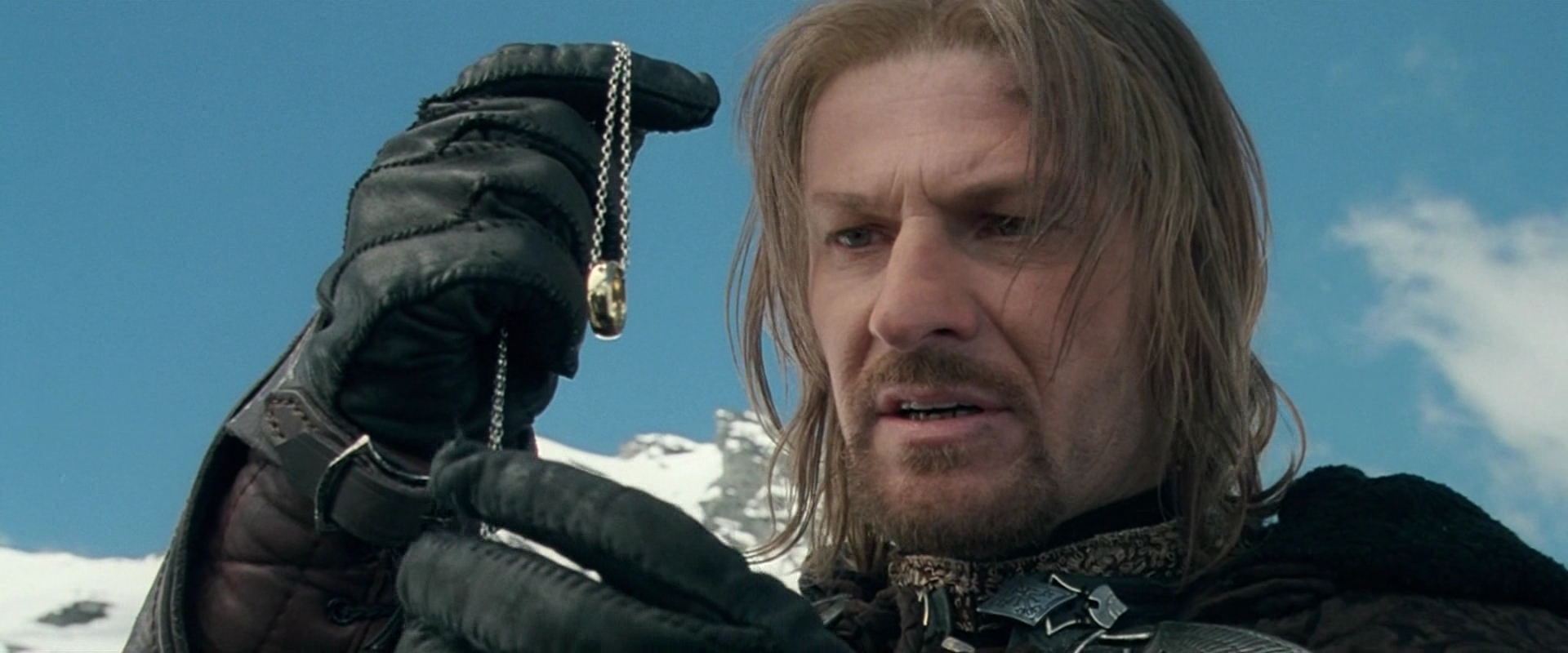Search for topics or resources
Enter your search below and hit enter or click the search icon.

To briefly say a bit more about this:
"Evangelicalism" as a Movement of Boromirs: each faction in the movement trying to wield a ring of power in its own way, thereby using worldly means to supposedly obtain heavenly goods. Or, to twist Schaeffer: The Lord's Work in the World's Way
— Jake Meador (@jake_meador) August 18, 2022
Here’s the concern: When I look at the evangelical left, to the extent that it still exists and hasn’t just collapsed down into a purely political movement with no religious content whatever, I see an attempt to preserve Christianity through an endless modification of Christian practice in a never-ending chase after mainstream blue state respectability. If Christianity must change or die, it would seem that Christianity just never stops changing and, ultimately, never has any fixed content at all.
When I look at the evangelical right, I see a movement that has been taken culturally and politically captive by right-wing ideology and, specifically, a personality cult around Donald Trump. So the stuff the Bible says about wealth gets relativized or abandoned altogether, as does much of what it says regarding justice. Its teachings concerning migrants and sojourners? Same story. (Rusty Reno, to his credit, has tried to preserve some of these things, particularly in Resurrecting the Idea of a Christian Society. But he’s been the exception rather than the rule here and because his later work doesn’t sufficiently judge the strong gods by Christian light, I worry that even his attempts to preserve Christian teaching where possible will be running against the wind.) What we’re left with is mostly white evangelical crap.
Both of these movements, of course, also run on shame dynamics.
Meanwhile, the evangelical center—here I’m thinking of many of our legacy institutions as well as most white megachurches—consists of a range of moderates who basically spend all their time chasing their own tails, trying to fit the way of Jesus and Christian discipleship into what was a kind of mainstream American package circa 15 years ago—dual careerists, over-programmed kids, attractional megachurch ecclesiology, and so on, all while not doing anything too extreme in response to Christ’s call that might upset that system. It’s a strategy whose evangelistic appeal is basically proving that Christians can be good consumption-driven, status-chasing workers just like everyone else.
What unites these movements, I think, is that each of them basically bins huge sections of Christian doctrine and piety and often does so for ostensibly Christian reasons, usually reasons having to do either with Christian survival or Christian evangelization—a fact which makes me wonder how central fear is to all of these various groups. The latest centrist fad, of course, is online church, which is now being justified in the same way that all the other terrible centrist ideas get justified: “to reach, disciple, and mobilize more people than ever before in our history.”
Having 10,000 people in your megachurch isn’t cool anymore. What’s cool is having 100,000 people on your livestream. Never mind that we have been furnished with example after example of why this doesn’t work, that the lack of personal knowledge and relationship makes actual discipleship basically impossible. Never mind that the best megachurch pastors—think of folks like Matt Chandler or Tim Keller—have explained why all this stuff breaks down and makes discipleship extremely challenging. Let’s just keep chasing those numbers.
Meanwhile, the evangelical right has basically given up on evangelization, thinking it will secure America’s Christian future through a distinctly sub-Christian form of political engagement in which virtue has no place and power is all that matters. (I’m not sure it’s worth even laying out the issues with the evangelical left, both because they’re so small as to be basically irrelevant and because they should be abundantly obvious to anyone looking at the remains of the movement.)
Here’s my thesis: If we’re living in a way that the world can look at us and explain our life without any need to mention Jesus, we’re doing it wrong. The church should be a people whose lifestyle is only sensible if Jesus actually walked out of the tomb. Does that make us fools? Then so be it. We can number ourselves with St Paul in that case.
Instead of choosing this heavenly sort of foolishness, we’ve attempted to walk by the light of our own sparks. And so what we have are various factions all trapped in the same sort of Matrix, all finding their own forms of worldliness that will theoretically, at some point, yield Christian fruit. As a result, each of these movements struggles enormously to disciple people in the way of Jesus.
Jake Meador is the editor-in-chief of Mere Orthodoxy. He is a 2010 graduate of the University of Nebraska-Lincoln where he studied English and History. He lives in Lincoln, NE with his wife Joie, their daughter Davy Joy, and sons Wendell, Austin, and Ambrose. Jake's writing has appeared in The Atlantic, Commonweal, Christianity Today, Fare Forward, the University Bookman, Books & Culture, First Things, National Review, Front Porch Republic, and The Run of Play and he has written or contributed to several books, including "In Search of the Common Good," "What Are Christians For?" (both with InterVarsity Press), "A Protestant Christendom?" (with Davenant Press), and "Telling the Stories Right" (with the Front Porch Republic Press).
Topics: